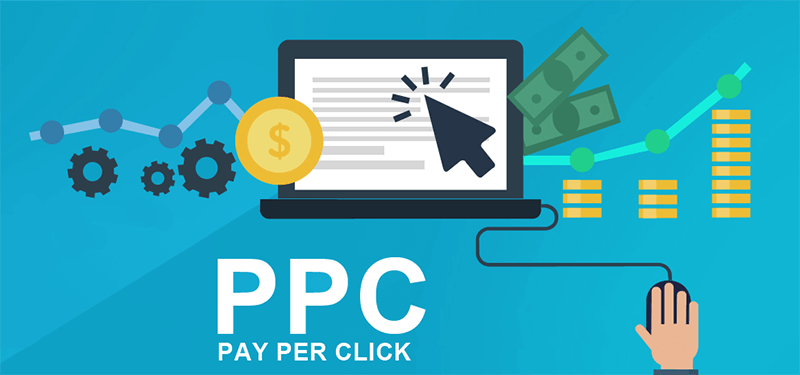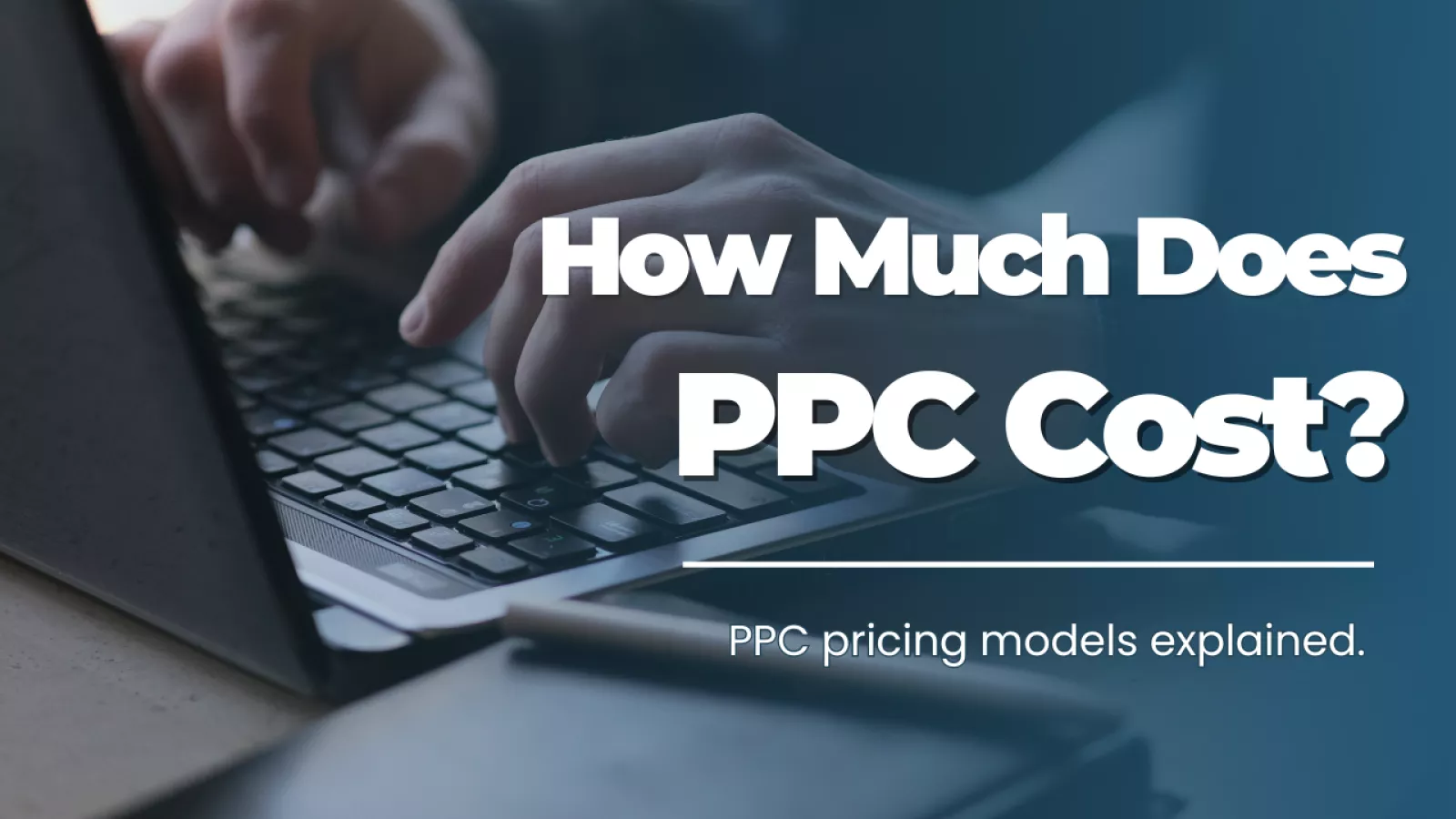PPC Pricing – Understanding Costs and Maximizing ROI
Pay-Per-Click advertising sure serves as a trusty map guiding businesses straight to their dream destinations. It lets you connect with folks who are actively hunting for what you’re selling. Instead of tossing money for broadcasting, you just pay when someone taps on your ad. Talk about efficient! PPC lights up the digital marketing stage, giving a straightforward and measurable channel to reach out to your audience. Nowadays, in this bustling online bazaar where every click is gold, PPC shines as a mighty tool worth some serious attention. Dive into this and watch how your business can soar to new heights.
What is PPC Pricing and How It Works
PPC (Pay-Per-Click) pricing refers to the cost structure used in PPC advertising, where advertisers pay a fee each time their ad is clicked. When a user performs a search or visits a website in the display network, an auction occurs to determine which ads will be shown. It considers the bid amount, the ad’s quality score, and other factors. Quality Score is a metric used by search engines to measure the relevance and quality of your keywords, ad copy, and landing pages. A higher Quality Score can lead to lower CPCs and better ad placement. It reflects how well your ad matches user intent and overall user experience.
Different PPC Pricing Models Explained
| CPC | CPM |
| Billing model where advertisers only pay when users click on ads. | A billing model that charges you if you show an ad to 1,000 users. |
| Focus on driving traffic to the website or landing page. | Focus on increasing brand awareness and gaining exposure. |
| Allows advertisers to pay only for active interactions with their ads. | Allows advertisers to gain greater reach at a fixed cost. |
Key Factors Influencing PPC Pricing
Understanding these factors helps you manage your PPC budget more effectively and make better decisions about ad strategy and targeting. Below are some factors that influence PPC Pricing:
Campaign Type: As the PPC campaign you run, such as search, display, or video and influencing each type of campaign has a different cost structure and strategy, affecting the overall price.
Landing Page Experience: As a manifestation of the quality and relevance of the landing page that users are sent to after clicking on an ad with an influence on good quality landing pages can increase quality score and lower cost per click.
Targeting Options: These are ad targeting options such as demographics, location, interests, and behaviors. It has an influence on more specific targeting can increase ad relevance, but can also affect costs if it involves highly competitive audiences.
Understanding Budgeting for PPC Campaigns
Here are some important things to consider in budgeting for PPC campaigns:
- Determining Daily and Monthly Budgets, able to set the maximum amount you’re ready to spend per day and per month for your PPC campaigns.
- Setting Maximum Bids, You are able to determine the maximum amount you’re willing to pay for each click on your ads.
- Managing Bids and Costs, optimizing bids to get good ad positions without exceeding the budget.
- Monitoring Campaign Performance, can oversee metrics such as Click-Through Rate (CTR), Cost Per Click (CPC), and Conversion Rate to assess campaign effectiveness.
- Using Targeting and Adjustments, can set geographic, demographic, and keyword targeting to ensure the budget is used efficiently.
Evaluating Cost-Effectiveness in PPC
Evaluating cost-effectiveness in Pay-Per-Click (PPC) advertising is crucial to maximize your return on investment (ROI). Here are key steps and metrics to consider:
Calculate Key Metrics
- Total cost of clicks divided by the number of clicks. Lower CPC can indicate better ad efficiency.
Use Attribution Models
- Analyze how various touchpoints in the customer journey contribute to conversions. This helps understand the true value of your PPC efforts.
Regular Reporting and Analysis
- Track and review performance metrics regularly to identify trends and areas for improvement. Use analytics tools to gain insights into performance and make data-driven decisions.
Conversion Rate Analysis
- As the percentage of clicks that result in desired actions. Higher conversion rates generally mean better cost-effectiveness.
How Bidding Strategies Impact PPC Costs
Here’s a breakdown of how various bidding strategies can affect your PPC costs:
- Manual CPC (Cost Per Click): You set the maximum amount you’re willing to pay for each click, and it gives you control over your bids but requires constant monitoring and adjustment. If not managed well, this can lead to higher costs if competitors bid aggressively.
- Target CPA (Cost Per Acquisition): You set a target CPA, and Google adjusts your bids to help you achieve that cost per acquisition. This strategy focuses on conversions rather than clicks. If set correctly, this strategy can reduce the cost per conversion by optimizing bids for your CPA target.
- Maximize Conversions: Google sets bids to get as many conversions as possible within your budget. This strategy aims to optimize for the highest number of conversions, potentially reducing the cost per conversion. However, this strategy can result in higher overall costs if conversion volume is high but conversion costs are not optimized.
Common Mistakes in PPC Budgeting
Common mistakes in PPC (Pay-Per-Click) budgeting can lead to inefficiencies and wasted costs. Here are some typical mistakes to avoid:
Overbidding on keywords
The mistake is you not using negative keywords to filter out irrelevant traffic can lead to wasted costs on clicks that are unlikely to result in conversions. Thus, the impact increases costs and decreases the overall efficiency of your campaign.
Ignoring seasonality
The mistake made is not taking into account seasonal trends and changes in consumer behavior can result in inappropriate budgets. So the impact is you may spend too much during periods of low demand and too little during peak times, affecting overall campaign performance.
Underestimating costs
The mistake is allocating too little budget can limit the visibility and effectiveness of your ads, especially in competitive markets. So the impact on a low budget may result in your ads not being displayed often enough to generate meaningful data or conversions.
Tips for Negotiating Costs with PPC Agencies
Negotiating costs with PPC (Pay-Per-Click) agencies can help you get better value for your advertising budget. Here are some tips to consider:
Clearly Define Your Goals such as your campaign objectives, target audience, and expected results. It provides benefits to help the agency understand your needs and propose a budget that aligns with your goals.
Research and compare agencies by researching several agencies and comparing their services, expertise, and prices. It provides benefits for negotiation and helps you identify which agencies offer the best value.
Request detailed proposals that include service details, costs, and expected results. The benefit is it allows you to understand what you’re paying for and negotiate specific elements of the proposal.
Future Trends in PPC Pricing Models

Here are some future trends in PPC (Pay-Per-Click) pricing models to watch out for:
Performance-based pricing by striving for increased use of performance-based pricing, where costs are directly linked to measurable outcomes such as conversions, sales, or other key performance indicators (KPIs).
Dynamic bidding strategies based on advanced algorithms and AI-based dynamic bidding strategies that adjust bids in real-time based on factors such as competition, user behavior, and market conditions.
Cost Per Acquisition (CPA) Optimization on the increasing emphasis on CPA optimization, where bids are adjusted to achieve CPA targets, balancing between costs and conversion goals.
Increased integration with AI and machine learning with better use of AI and machine learning to predict trends, optimize bids, and allocate budgets more efficiently.
Conclusion
PPC Pricing refers to the cost structure used in PPC advertising, where advertisers pay a fee each time their ad is clicked. When a user performs a search or visits a website in the display network, an auction occurs to determine which ads will be shown. It considers the bid amount, the ad’s quality score, and other factors. Quality Score is a metric used by search engines to measure the relevance and quality of your keywords, ad copy, and landing pages.
FAQ
